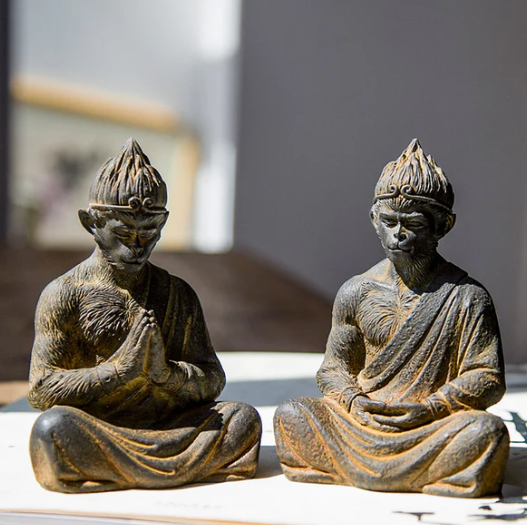Eastern Mythology’s Monkey King: The Personification of Liberty and Strength
Sun Wukong, sometimes known as the Monkey King, is a well-known figure in the extensive fabric of Chinese cultural history. Being a major character in Journey to the West, he is not just a hero in the narrative but also a someone who many people would always hold in high regard. Sun Wukong is a distinctive and enduring figure in Eastern culture because of his tremendous bravery, power, and intelligence. He also symbolizes freedom and revolt.
The Monkey King’s History and Mythology
Wu Cheng’en’s Journey to the West, written during the Ming Dynasty, is when the narrative of Sun Wukong first appeared. He was supposedly born from a magical stone on Mount Huaguo that was charged with heavenly energy. He became a disciple of Patriarch Subodhi after demonstrating extraordinary talent and aptitude, learning the somersault cloud technique and the 72 transformations. Proclaiming himself the “Great Sage Equal to Heaven,” he upended the Dragon Palace, sparked anarchy in the underworld, and questioned the order of the heavens. He became a crucial part of the trip to the West after the Buddha ultimately vanquished him and imprisoned him beneath the Five Elements Mountain until Tang Sanzang released him.

The Character and Significance of Sun Wukong
The inconsistencies that make up Sun Wukong’s character are intriguing. He is a very charismatic person since he is aggressive but naughty, proud and devoted.
Spirit of Rebellion: Sun Wukong demonstrated his desire for independence and self-realization by claiming to be “Great Sage Equal to Heaven,” defying convention and authority.
Justice and Loyalty: During the pilgrimage, he changed from a disobedient hero to a faithful guardian, exhibiting unflinching devotion to Tang Sanzang and valiantly and resourcefully battling demons.
A Combination of Wisdom and Strength:
Sun Wukong, armed with his golden staff and blazing eyes, was a combination of intelligence and physical strength who frequently used cunning tactics to get past obstacles.
The Monkey King’s Cultural Influence
The Monkey King has influenced art, movies, and contemporary pop culture in addition to literature. His fabled tale has been given new life by innumerable versions, including Havoc in Heaven and Monkey King: Hero Is Back.
Furthermore, the metaphorical value of Sun Wukong goes beyond fiction. His spirit continues to inspire people all around the world, whether it is in the fight for independence, resistance to persecution, or bravery in the face of hardship.
The Monkey King’s Significance in Contemporary Times
The legacy of Sun Wukong is still very much relevant in today’s culture.
Individuality and Innovation: Sun Wukong’s rebellious spirit encourages people to overcome obstacles and pursue their aspirations in a time that values self-expression and defying expectations.
Teamwork and Development: His trip with the other pilgrims teaches important lessons for contemporary interpersonal and team dynamics, emphasizing the value of cooperation and personal growth.
Cultural Bridge: Sun Wukong, a representation of Eastern culture, is essential to cross-cultural dialogue and highlights the distinct allure of traditional Chinese literature.
Collectible and Creative Illustrations of the Monkey King
Sun Wukong appears in a variety of artwork and souvenirs, like as jewelry, paintings, and sculptures. His portrayals, which represent the harmony between might and wisdom, span from grand and heroic to lively and funny.
A piece of art with a Monkey King motif is not only aesthetically pleasing but also serves as a spiritual fulcrum for people who value Eastern culture or mythological characters.
In conclusion
In addition to mythology, the Monkey King legend is present in people’s daily lives and spiritual practices. He is a timeless representation of justice, knowledge, and freedom. We can take courage from Sun Wukong’s story to face the problems of today’s world, forging our own unique route in life without fear.
“This journey is mine, and I shall return victorious!”
